Choosing a Top cloud server providers is important for your business. The right provider can boost your website’s speed, improve security, and save costs. In this guide, we will share the best cloud server providers. They offer services that are reliable, flexible, and secure.
What Are Cloud Servers?
Cloud servers are virtual machines that store and process data online. Unlike traditional servers, they don’t need physical hardware on your end. Cloud companies manage large data centers that store your data. You can access your data anytime, anywhere.
Benefits of Cloud Servers
- Scalability: Increase or decrease resources as needed.
- Cost Savings: Pay only for what you use.
- Accessibility: Access your data from any device with internet.
- Security: Providers often offer encryption and backup services.
- Performance: Get fast loading times and high uptime.
How to Choose the Right Cloud Server Provider
Before deciding, think about what your business needs. Here are some key factors to consider:
1. Performance and Speed
A fast server ensures that your website loads on time. Choose a provider with a high uptime guarantee and fast data processing.
2. Pricing Plans
Look for transparent and flexible pricing. Some providers offer pay-as-you-go plans, which can save costs.
3. Security Features
Strong security measures, like encryption and firewalls, are essential. Make sure the provider offers data backups and recovery options.
4. Support Availability
Choose a company with 24/7 customer support. This can help if you face any issues.
5. Ease of Use
A simple and user-friendly platform will shorten the required time. Some providers offer dashboards for easy management.
Top Cloud Server Providers in 2025
Here’s a list of the most trusted cloud server providers this year:
1. Amazon Web Services (AWS) – Best for Scalability
Overview
Amazon Web Services, or AWS, is a leading cloud platform. It offers over 200 services, including computing, storage, and databases. People know AWS for its scalability and global network of data centers.
Key Features
- On-demand pricing with flexible plans.
- Global infrastructure for fast data delivery.
- Strong focus on security and compliance.
- AI and machine learning tools available.
Pros
- Scalable to a great extent.
- Excellent uptime and performance.
- Wide range of services for different needs.
Cons
- Can be complex for beginners.
- Pricing can be confusing.
Credit : @amazonwebservices
2. Microsoft Azure – Best for Hybrid Solutions
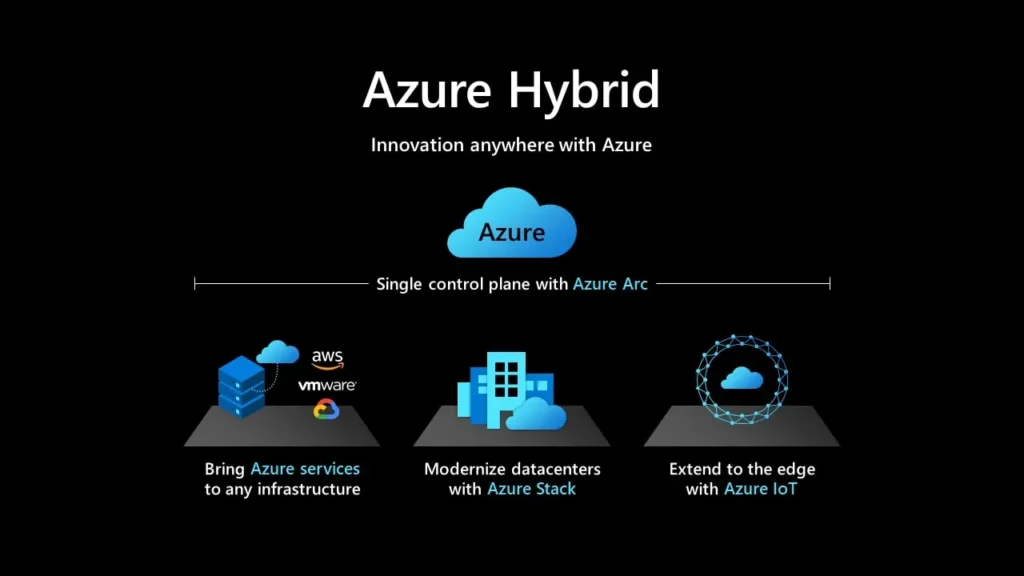
Credit : azure.microsoft.com/
Overview
Microsoft Azure offers cloud solutions for businesses of all sizes. It’s perfect for firms that use Microsoft products, like Windows and Office 365.
Key Features
- Hybrid cloud solutions for flexibility.
- Integration with Microsoft tools.
- Strong security features and AI capabilities.
- Pay-as-you-go pricing.
Pros
- Great for Windows-based environments.
- Flexible and cost-effective.
- Offers both Linux and Windows support.
Cons
- Has a steep learning curve.
- Some advanced services can be expensive.
3. Google Cloud Platform (GCP) – Best for Data-Driven Projects
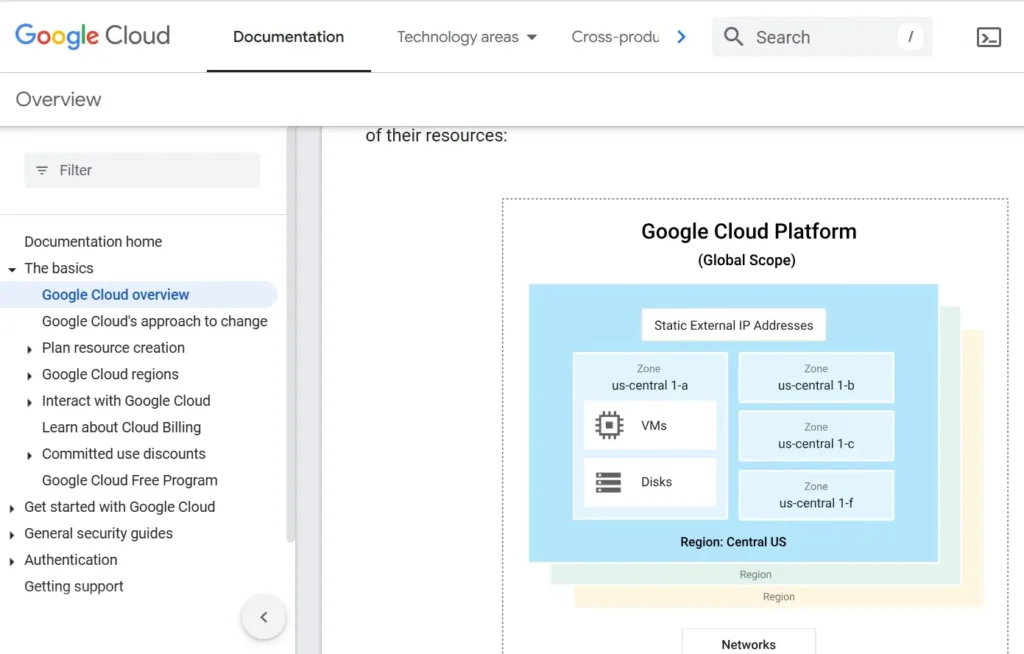
Credit : cloud.google.com/
Overview
People know Google Cloud Platform for its strong infrastructure and innovative tools. It’s ideal for businesses that need data analytics and AI services.
Key Features
- AI and machine learning capabilities.
- Integration with Google services.
- Strong focus on data security.
- Global network for fast access.
Pros
- Powerful for data analytics.
- An interface that is easy to use and understand.
- Strong security measures.
Cons
- Fewer services compared to AWS.
- Can be costly for smaller projects.
4. DigitalOcean – Best for Simplicity
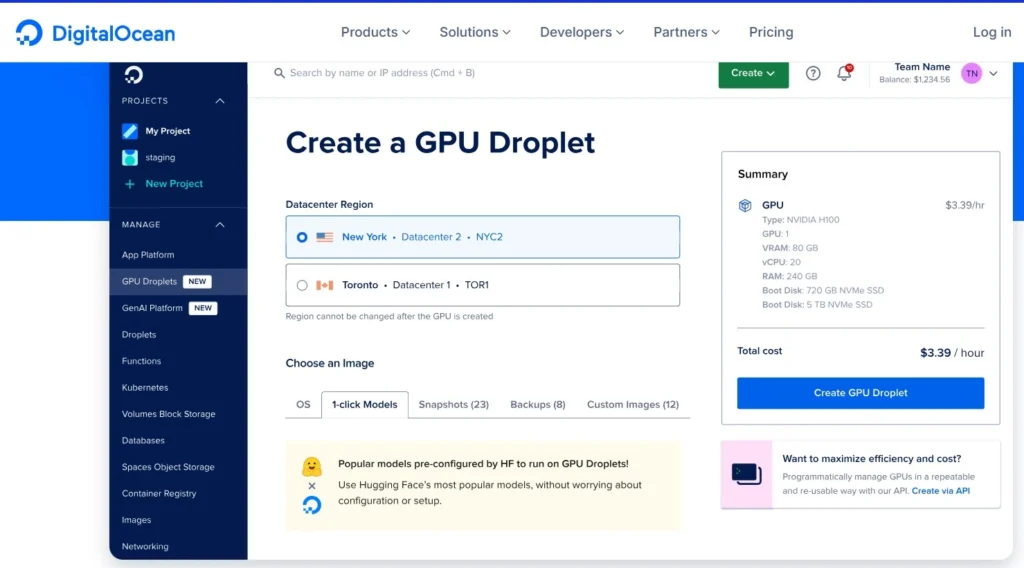
Overview
DigitalOcean focuses on simplicity and ease of use. It is popular among developers and small businesses. DigitalOcean offers cloud solutions that are straightforward and affordable.
Key Features
- Simple interface with a clean dashboard.
- Droplets, which are scalable virtual servers.
- One-click installations for apps and tools.
- Affordable pricing with predictable costs.
Pros
- Easy to set up and manage.
- Cost-effective for small projects.
- Great documentation and tutorials.
Cons
- Not ideal for large enterprises.
- Limited advanced services compared to bigger providers.
5. IBM Cloud – Best for Enterprise Solutions
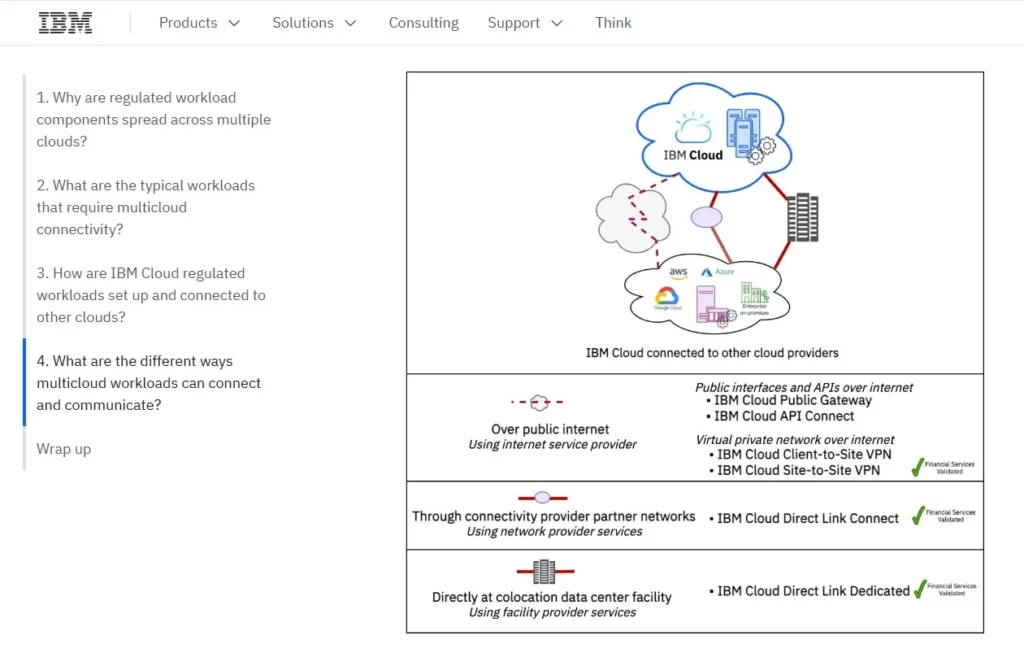
Credit : ibm.com/cloud
Overview
IBM Cloud offers powerful tools for businesses needing high security and custom solutions. It provides both public and private cloud options, making it ideal for enterprises.
Key Features
- AI-powered solutions for data management.
- Strong security and compliance features.
- Hybrid cloud support for flexibility.
- Integration with Watson AI services.
Pros
- Excellent for enterprise-level projects.
- Strong focus on security and customization.
- Flexible deployment options.
Cons
- Can be expensive.
- Complex setup for smaller teams.
6. Vultr – Best for Developers
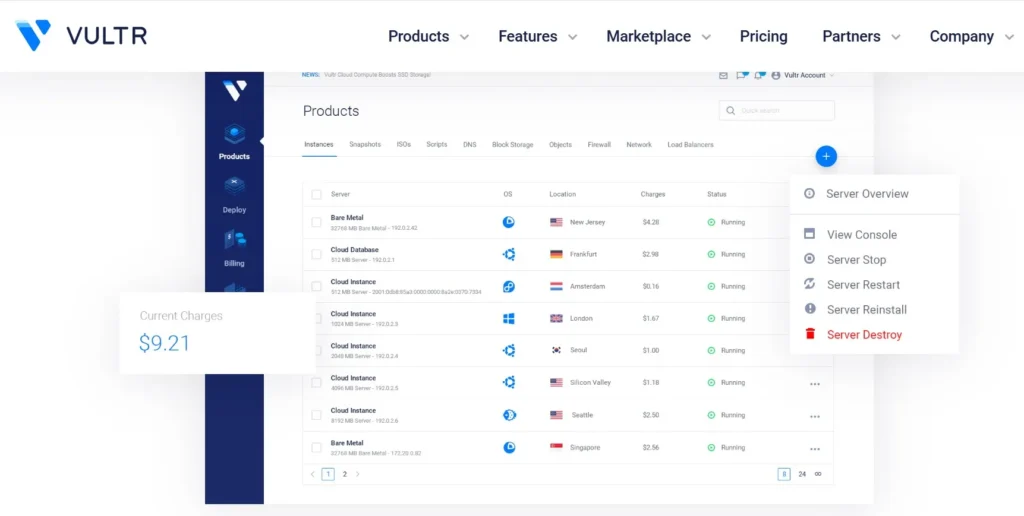
Credit : vultr.com/
Overview
People know Vultr for its performance and developer-friendly tools. It offers a variety of cloud services, including compute, storage, and Kubernetes.
Key Features
- High-performance SSD servers.
- Global data centers for faster speeds.
- Simple API for developers.
- Hourly pricing for flexibility.
Pros
- Developer-friendly platform.
- Affordable and flexible pricing.
- Fast deployment of servers.
Cons
- Limited support options.
- Not ideal for beginners.
Comparing Cloud Server Providers: Which One Suits You Best?
We’ve explored some of the best cloud server providers. Now, let’s compare their key features, prices, and performance. This will help you decide which provider is right for your needs.
Performance and Uptime
| Provider | Uptime Guarantee | Global Data Centers | Speed & Reliability |
| AWS | 99.99% | Yes | High |
| Microsoft Azure | 99.95% | Yes | High |
| Google Cloud | 99.95% | Yes | High |
| DigitalOcean | 99.99% | Limited | Moderate |
| IBM Cloud | 99.99% | Yes | High |
| Vultr | 99.99% | Yes | High |
Pricing and Flexibility
| Provider | Pricing Model | Best for Small Business | Pay-as-You-Go Option |
| AWS | Complex (Pay-as-you-go) | Sometimes | Yes |
| Microsoft Azure | Flexible Plans | Yes | Yes |
| Google Cloud | Transparent | Yes | Yes |
| DigitalOcean | Predictable (Simple) | Yes | No |
| IBM Cloud | Premium Pricing | No | Yes |
| Vultr | Hourly Billing | Yes | Yes |
Security and Support
| Provider | Security Features | 24/7 Support | Data Backups |
| AWS | Encryption, Firewalls, IAM | Yes | Yes |
| Microsoft Azure | Multi-layer Security | Yes | Yes |
| Google Cloud | Identity Management, Firewalls | Yes | Yes |
| DigitalOcean | Basic Security | Limited | Optional |
| IBM Cloud | Enterprise-grade Security | Yes | Yes |
| Vultr | Standard Security Tools | Limited | Optional |
Final Thoughts: Which Cloud Server Provider Should You Choose?
Choosing the right cloud server provider depends on your needs. Each provider has strengths and weaknesses. So, consider your size, budget, and technical needs. Here’s a quick guide to help:
- AWS: Best for businesses needing scalable solutions and a wide range of services.
- Microsoft Azure: Ideal for companies using Microsoft tools or needing hybrid solutions.
- Google Cloud: Perfect for data-driven projects and AI services.
- DigitalOcean: Great for small businesses and developers who need simplicity.
- IBM Cloud: Suitable for enterprises needing high security and custom solutions.
- Vultr: Best for developers seeking performance and flexibility.
What is the most cost-effective cloud server provider?
DigitalOcean and Vultr frequently provide the most budget-friendly options. They offer simple pricing models and flexible plans.
Which provider is best for large enterprises?
AWS and IBM Cloud are great for large businesses. They need robust security and advanced features.
Can I switch providers later if needed?
Yes, most cloud providers allow tools to migrate data and apps between platforms.
How important is customer support?
Very important! Check for providers with 24/7 support. This is vital for a critical business app.
Is cloud hosting safe?
Yes, most providers offer strong security measures, including encryption, firewalls, and backups. Be sure to choose a provider with good security practices.
That concludes our in-depth guide to the Cloud Server Providers for 2025. Make a careful choice. Your business will gain faster performance, better security, and more flexibility.


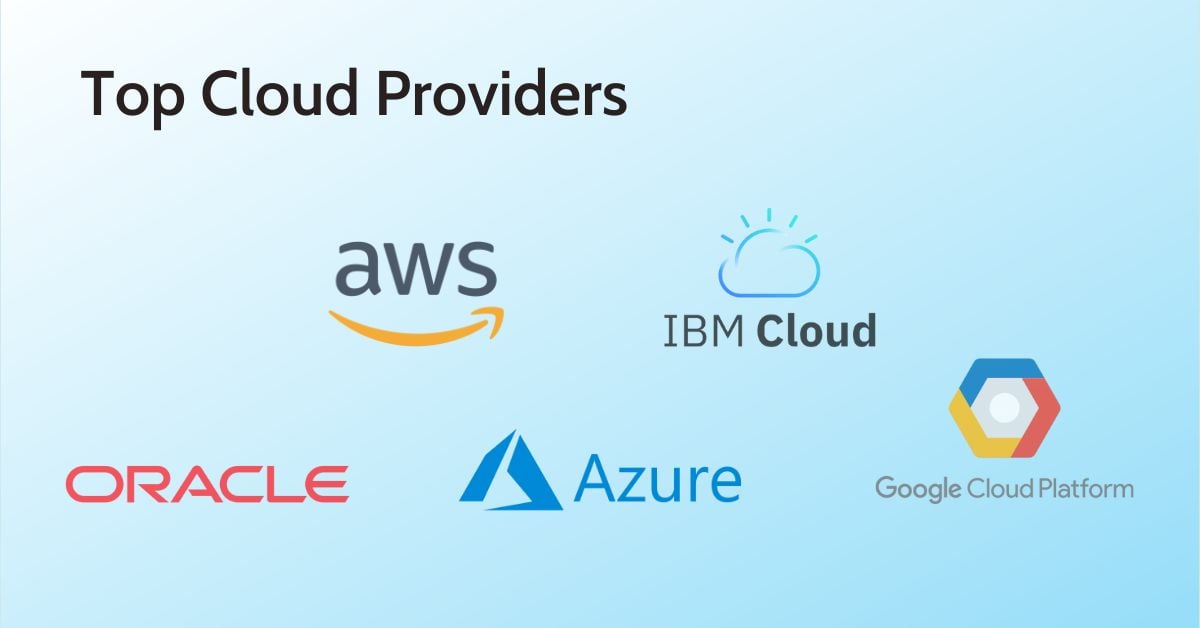
Leave a Reply